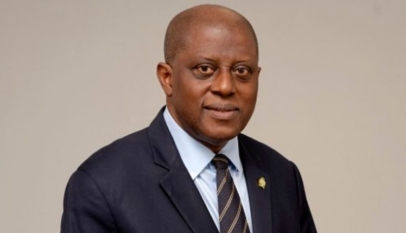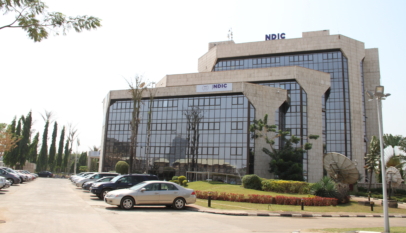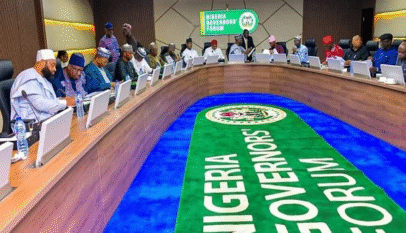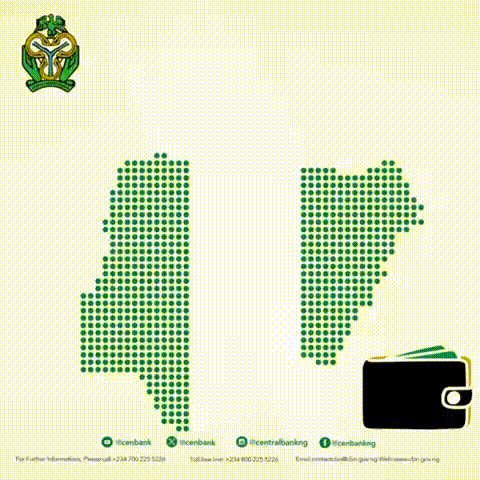
Nigeria’s Economic Reforms Gain Global Endorsements Amid Domestic Concerns
Abiodun Folarin
While many Nigerians continue to express frustration over the rising cost of living and the short-term pains of economic restructuring, global confidence in the country’s reform trajectory is growing.
Two of the world’s most respected financial institutions the International Monetary Fund (IMF) and Moody’s have commended the federal government’s bold policy choices aimed at stabilizing and repositioning the economy. These institutions have described Nigeria’s fiscal and monetary reforms as essential building blocks for long-term growth and macroeconomic stability.
Although domestic dissatisfaction is mounting with some citizens voicing discontent ahead of the next general elections, fueled by prevailing social and security challenges external observers are taking a more optimistic view.
Offering a data-driven contrast to emotionally charged public sentiment, both the IMF and Moody’s have given Nigeria a positive outlook in their latest assessments. Their reports, especially the IMF’s Article IV Consultation on Nigeria, highlight the progress made in critical areas such as exchange rate reforms, subsidy removal, and tighter monetary policy.
These endorsements signal renewed international confidence in Nigeria’s economy, potentially paving the way for increased foreign investment and stronger macroeconomic fundamentals.
Speaking in an interview during the last Monterey Policy Committee (MPC) Meeting, about the country’s economic outlook, Governor of the Central Bank of Nigeria (CBN), Mr. Olayemi Cardoso, emphasized that the IMF’s endorsement is significant and should not be dismissed as mere whitewash. According to him, the IMF is a credible institution whose assessments influence investor confidence globally. He added that Moody’s has also recently upgraded Nigeria’s outlook, signaling positive sentiment from rating agencies.
Cardoso said these institutions agree that Nigeria has taken bold and transformative steps to reposition its macroeconomic fundamentals. “On the monetary side, we’ve ended the monetization of fiscal deficits, improved the foreign exchange market, and eliminated fuel subsidies—painful but necessary stabilizing measures. The gap between the parallel and official exchange rates has narrowed, and banks now allow Naira card usage abroad,” he stated.
On inflation, Cardoso noted that it is gradually being brought under control and that Nigerians are beginning to regain confidence in their currency. While reiterating that the reforms are long-term and irreversible, he stressed the need to build resilience for future uncertainties and maintain policy consistency to sustain both domestic and foreign investor trust.
When asked how the CBN is adjusting its monetary policy tools to ensure a structural reduction in inflation—beyond the marginal year-on-year drop from 22.97% in May to 22.22% in June, even as month-on-month inflation rose from 1.53% to 1.68%—Cardoso said the Bank remains focused on driving inflation into single digits.
“We are dealing with the aftereffects of excessive money supply from past fiscal injections and interventions, which cannot disappear overnight. To address this, we’ve adopted a tight monetary stance, despite its costs. There are, however, positives in the oil and gas sector, with Nigeria now meeting its OPEC quota and enhanced transparency in NNPC earnings. We will continue to utilize tools such as the Monetary Policy Rate (MPR), Cash Reserve Ratio (CRR), and efficient FX market management, in coordination with fiscal authorities, to bring inflation down sustainably,” he explained.
On mitigating external shocks—especially in light of the IMF’s warnings about potential crises in China, shrinking global fiscal space, and persistent inflationary drivers such as food supply shocks and high energy costs—Cardoso acknowledged the risks but said the apex bank is proactively addressing them.
“We’ve increased domestic oil production and improved security, which have boosted our output and helped stabilize the economy. Our foreign reserve base has also been diversified. With the introduction of non-resident BVN, diaspora remittances are now more accessible, allowing Nigerians abroad to open bank accounts remotely. This has strengthened our foreign reserves, which now exceed $40 billion. Despite global uncertainties, Nigeria’s financial system remains stable, and our currency held firm during recent emerging market crises. The numbers speak for themselves,” he said.
Cardoso also addressed concerns raised by recent Purchasing Managers’ Index (PMI) reports, which pointed to rising input costs and potential inflationary pressure. He clarified that the PMI reflects business sentiment, not the Bank’s view. “While input costs have risen, many manufacturers are absorbing these rather than passing them to consumers. This is positive for competition, helps to moderate inflation, and demonstrates strong market dynamics focused on customer retention,” he explained.
On the recapitalization of banks—now just eight months away—Cardoso revealed that eight banks have already surpassed the new minimum capital requirement. One of them has successfully raised substantial funds on the London Stock Exchange, a move that reflects international investor confidence in Nigeria’s financial institutions.
“As regulators, we are committed to maintaining system resilience and ensuring all players operate within established rules. The temporary regulatory forbearances granted, consistent with global Basel standards, are intended to help banks build capital buffers, manage provisions, and withhold dividend payouts where necessary. Currently, the sector’s capital adequacy ratio stands at 13%, and Non-Performing Loans (NPLs) are around 5%. Overall, the banking system is sound, resilient, and fit for purpose,” he said.
CBN Communiqué Highlights: Policy Tightening to Tame Inflation
In a communiqué (Ref: CBN/MPC/COM/158/301), titled Monetary Policy Communiqué No. 158, the CBN outlined the outcomes of its 301st Monetary Policy Committee (MPC) meeting held on July 21–22, 2025.
Key Decisions:
Monetary Policy Rate (MPR) retained at 27.50%; Asymmetric corridor around MPR maintained at +500/-100 basis points; Cash Reserve Ratio (CRR) held at 50.00% for Deposit Money Banks and 16.00% for Merchant Banks and Liquidity Ratio maintained at 30.00%.
The MPC said the decision aims to sustain disinflation momentum and address underlying inflationary pressures. It pledged continued rigorous assessment of the economy to inform future decisions.
Inflation Outlook:
Headline inflation fell for the third consecutive month to 22.22% in June from 22.97% in May, largely due to declining energy costs and foreign exchange stability. However, food inflation rose to 21.97%, and core inflation increased to 22.76%, reflecting higher costs in ICT, housing, utilities, and personal care services. Month-on-month inflation climbed to 1.68%, up from 1.53% in May.
The Committee commended government efforts to improve security and support agriculture, especially the timely provision of high-yield seedlings and fertilizers for the ongoing farming season.
Macroeconomic Update:
Q1 2025 GDP grew by 3.13%, up from 2.27% in Q1 2024, Purchasing Managers Index signals continued economic expansion, while External reserves rose to $40.11 billion (9.5 months of import cover)
Global Outlook:
Global recovery continues gradually, but tariff wars and geopolitical tensions remain a threat to supply chains and imported inflation. While inflation in advanced economies is easing slowly, emerging market central banks continue to tighten policies cautiously.
Forward Guidance:
CBN staff project continued inflation decline, supported by tight monetary policy, stable FX rates, and improving food supplies with the harvest season. The MPC emphasized its commitment to price stability and maintaining investor confidence.
The next MPC meeting is scheduled for Monday and Tuesday, September 22–23, 2025.






